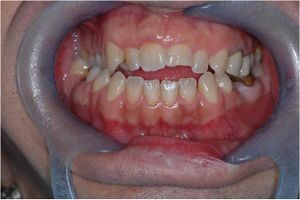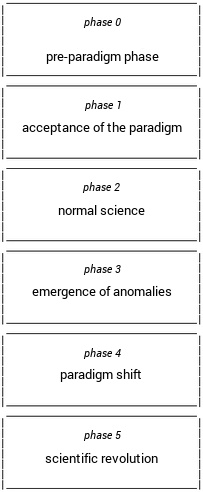Draft:Introduction - it
| Other languages: |
Vorremmo che il lettore avesse immediata percezione degli argomenti che verranno trattati in Masticationpedia, passando in rassegna alcuni dei temi più attuali che riguardano l'evoluzione epistemologica della Scienza in generale, quella medica ed odontoiatrica in particolare...
In questa fase prenderemo in considerazione i due aspetti fondamentali del Progresso della Scienza, secondo i Paradigmi di Kuhn, e la Epistemologia, che mette in discussione (o per lo meno in allerta) i concetti di "Inferenza Statistica" e di "Interdisciplinarità".
Questi due temi, che apparentemente sembrano in conflitto tra loro, in quanto il primo necessita di disciplinarità per evidenziare le "Anomalie nel Paradigma" ed il secondo di "Interdisciplinarità", si integreranno attraverso un elemento risolutore che consiste negli "Scaffold metacognitivi", ponti cognitivi tra discipline specialistiche. Il lettore, dunque, potrà meglio apprezzare, in questo contesto, l'approccio stocastico verso uno dei temi più dibattuti nelle riabilitazioni masticatorie come la "Malocclusione", da cui derivano gran parte delle procedure riabilitative masticatorie come l'ortodonzia, la protesi e la chirurgia ortognatica.
In chiusura, perciò, oltre ad anticipare l'aspetto filosofico scientifico di Masticationpedia, ci soffermeremo su argomenti come i "Sistemi Complessi", il "Comportamento Emergente" dei Sistemi Complessi e la "Coerenza di Sistema": passaggi necessari per introdurre argomenti scientifico clinici che portano con se una serie di dubbi, quesiti e contestualmente innovazioni paradigmatiche tendenti a cambiare lo status quo della routine di pensiero clinico deterministico e riduzionista, a fronte di una logica di linguaggio stocastico ed interdisciplinare.
Ab ovo[1]
Prima di entrare nel vivo della trattazione Masticationpedia, è opportuna una premessa, che riguarda principalmente due aspetti della realtà sociale, scientifica e clinica dell'era attuale e dell'era immediatamente precedente.
Nel secolo scorso si è assistito a una crescita esponenziale di "Innovazioni" tecnologiche e metodologiche in particolare in odontoiatria;[2] queste innovazioni hanno in qualche modo influenzato strategie decisionali, opinioni, scuole di pensiero e assiomi al fine di migliorare la qualità della vita, come affermato nella "Scienza dell'esposizione nel 21° secolo".[3] Tuttavia, questa crescita esponenziale porta con sé, implicitamente, aree grigie concettuali (in termini pratici "effetti collaterali") talvolta sottovalutate, ma che possono mettere in discussione alcune Certezze Scientifiche o renderle meno assolute e più probabilistiche.[4] I due aspetti sensibili dell'attuale realtà sociale, scientifica e clinica (che sembrano in conflitto tra loro, ma come vedremo alla fine di questa lettura saranno complementari) sono il "Progresso della scienza" secondo Kuhn e il " Epistemologia".
==Progress of Science according to Thomas Kuhn==
Thomas Kuhn in his most famous work states that science cyclically passes through some phases indicative of its operation.[5][6] According to Kuhn, science is paradigmatic, and the demarcation between science and pseudoscience can be traced back to the existence of a paradigm. The evolution of scientific progress is assimilated to a continuous curve which undergoes discontinuity in paradigm changes. For example, in phase 2 of the Kuhn Paradigms, called Normal Science, scientists are seen as problem solvers, who work to improve the agreement between the paradigm and nature.
This phase, in fact, is based on a set of basic principles dictated by the paradigm, which are not questioned but which, indeed, are entrusted with the task of indicating the coordinates of the works to come. In this phase, the measuring instruments with which the experiments are made are developed, most of the scientific articles are produced and its results constitute significant growth in scientific knowledge. In the normal science phase both successes and failures will be achieved; the failures are called by Kuhn anomalies, or events that go against the paradigm.
As a good problem solver, the scientist tries to solve these anomalies.
Kuhn's phases in Dentistry
Kuhn, however, divides the evolution of a paradigm into five phases; this is a fundamental process for Masticationpedia, but to keep tuned with the project, we will limit ourselves to describing the two most significant phases:
| |
|
It is almost obvious that Kuhnian scientific philosophy prefers disciplinarity, as an anomaly in the genomic paradigm will be noticed better by a geneticist than by a neurophysiologist. Now this concept would seem to be in contrast with the epistemological evolution of Science, so it is better to stop a minute upon it in detail.
- ↑ Latin for "since the very beginning"
- ↑ Heft MW, Fox CH, Duncan RP, «Assessing the Translation of Research and Innovation into Dental Practice», in JDR Clin Trans Res, 2019».
DOI:10.1177/2380084419879391 - ↑ «Exposure Science in the 21st Century. A Vision and a Strategy», Committee on Human and Environmental Exposure Science in the 21st Century; Board on Environmental Studies and Toxicology; Division on Earth and Life Studies; National Research Council.».
ISBN: 0-309-26468-5 - ↑ Liu L, Li Y, «The unexpected side effects and safety of therapeutic monoclonal antibodies», in Drugs Today, 2014, Barcellona».
DOI:10.1358/dot.2014.50.1.2076506 - ↑ Thomas Samuel Kuhn (Cincinnati, 18 july 1922 – Cambridge, 17 june 1996) was an American philosopher of science.
See Treccani, Kuhn, Thomas Samuel. Wikipedia, Thomas Kuhn. - ↑ Kuhn Thomas S, «The Structure of Scientific Revolutions», Univ. of Chicago Press, 2012, Chicago».
ISBN: 9780226458113
particularly focusing on the field of the neurophysiology of the masticatory system

